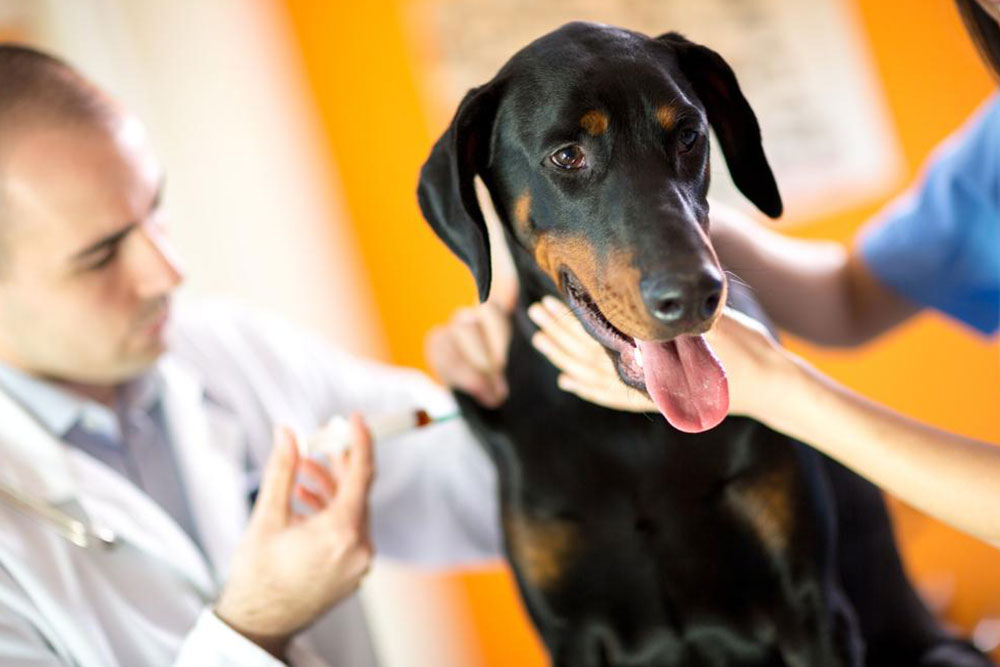Comprehensive Guide to Understanding and Managing Canine Food Sensitivities
This comprehensive guide explores canine food sensitivities, highlighting their causes, symptoms, diagnosis methods, and management strategies. Learn how to identify allergies and implement effective diets to ensure your dog’s health and comfort. Understanding these sensitivities helps in maintaining your pet’s overall well-being through informed dietary choices and veterinary collaboration.

In-Depth Insights into Dog Food Allergies and Sensitivities
If your dog frequently scratches, bites itself, exhibits a dull coat, or suffers from recurrent ear infections, these could be signs of food sensitivities or allergies. Such issues are increasingly common in dogs, raising the importance of understanding their underlying causes, diagnosis methods, and effective management strategies. This comprehensive guide delves into everything pet owners need to know about canine food sensitivities, helping you ensure your furry friend's health and comfort.
Understanding the Causes of Food Sensitivities in Dogs
Food sensitivities in dogs can stem from genetic predispositions, environmental factors, or immune responses. Reactions happen when dogs encounter specific ingredients that their immune systems find problematic. Common allergens include proteins like fish, pork, chicken, lamb, beef, and eggs, as well as grains such as wheat, soy, and dairy products. Typically, a dog may react to multiple ingredients, especially if their diet regularly includes diverse food items. The genetic makeup of certain breeds also influences susceptibility. For example, breeds like Cocker Spaniels, Dachshunds, German Shepherds, Labrador Retrievers, and Retrievers tend to show higher rates of food sensitivities, though regional dietary patterns can also impact prevalence.
Symptoms that Indicate Food Allergies or Sensitivities
Common signs include persistent itching, skin inflammations, recurring ear infections, hair loss, dull coat, gastrointestinal upset such as diarrhea or vomiting, and in some cases, behavioral changes like irritability. Recognizing these symptoms early is crucial for timely intervention. Keep in mind that not all skin issues are caused by food; allergies can mimic other skin conditions, so thorough diagnosis is essential.
How to Diagnose Canine Food Reactions
The gold standard for diagnosing food sensitivities is the elimination diet, which involves switching your dog to a novel or limited ingredient diet. During this period, your dog is fed a special formula—either homemade, commercial hydrolyzed diets, or novel protein sources—to eliminate potential allergens. Improvement in symptoms suggests dietary sensitivity. To confirm, allergens are reintroduced one at a time, observing for any adverse reactions. Additional diagnostic methods include skin testing and analysis of ear discharge, although these are less definitive than dietary elimination.
Effective Management of Food Sensitivities
Managing food sensitivities involves careful dietary planning. Elimination diets are often recommended, which can be homemade meals prepared with carefully selected ingredients or commercial hypoallergenic foods. Raw diets with strict ingredient control or commercial novel protein diets can be beneficial. It’s crucial to ensure these diets are nutritionally balanced to meet all of your dog's needs. Regular veterinary supervision is recommended to avoid nutritional deficiencies and to modify the diet as the dog’s condition improves.
Addressing Sudden Allergic Reactions in Dogs
Interestingly, dogs can develop allergies to foods they have eaten for years. This often occurs after three to four months of sensitization, emphasizing the importance of monitoring dietary changes and reactions. Rotate your dog’s diet every few months to prevent the buildup of sensitivities and support gut health, which plays a vital role in immune function. Consistent diet rotation can also help identify potential new allergens, keeping your pet healthy and comfortable.
Preventive Measures and Tips for Dog Owners
While it’s impossible to prevent all food allergies, there are strategies to reduce the risk. Providing a balanced, nutritious diet, rotating ingredients periodically, and avoiding repetition of the same food items help maintain your dog’s digestive health and immune resilience. Always choose high-quality, easily digestible ingredients, and consult your veterinarian before making significant dietary changes. Regular checkups and prompt attention to new or worsening symptoms will ensure your dog remains happy and healthy.
Understanding and managing canine food sensitivities is vital to improving your dog’s quality of life. By recognizing early signs, implementing appropriate dietary strategies, and working closely with veterinary professionals, you can help your dog avoid discomfort and maintain optimal health. The key lies in attentive observation, careful diet formulation, and proactive health care to keep your furry friend comfortable and thriving.





